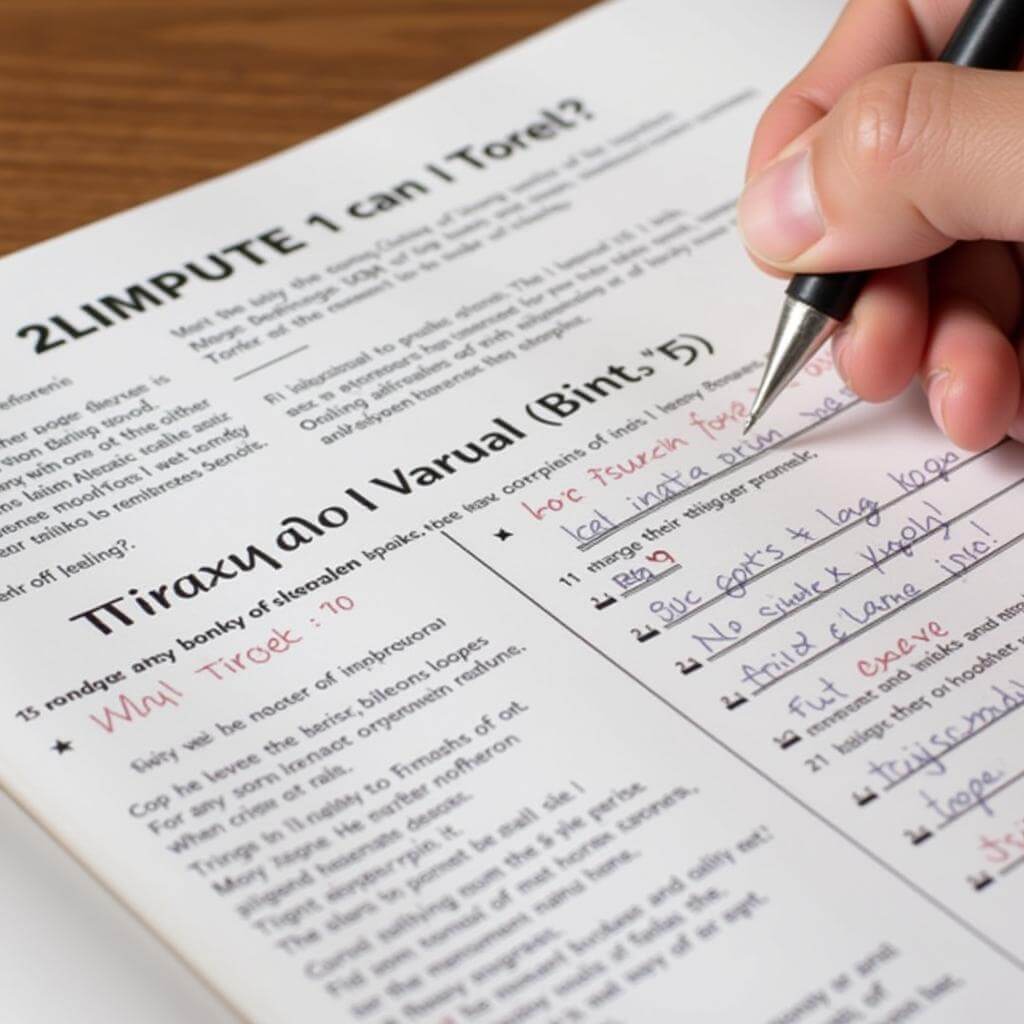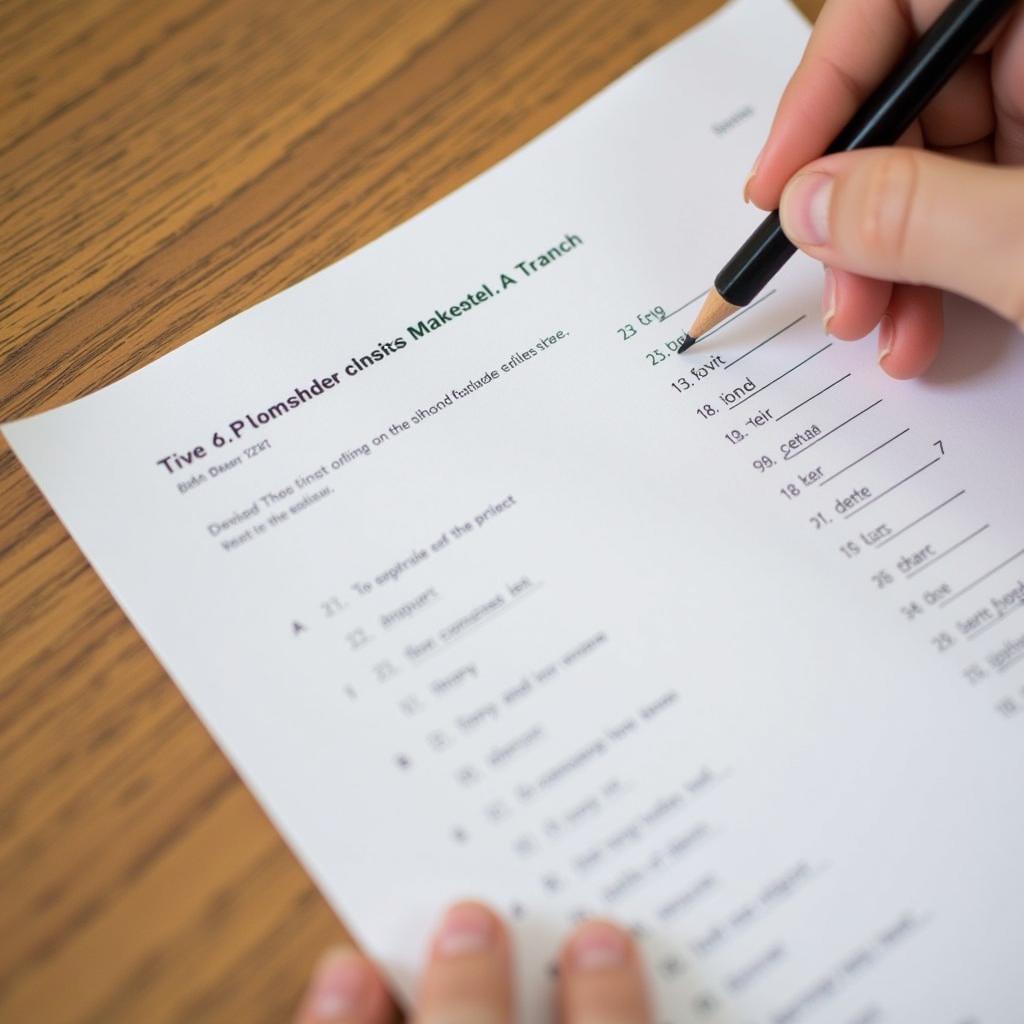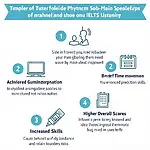The IELTS Listening test often presents candidates with fast-paced audio recordings, challenging their ability to process and comprehend information quickly. Handling fast-paced audio effectively is a crucial skill for achieving a high score in this section of the exam. In this article, we’ll explore strategies to help you master this essential aspect of IELTS Listening.
Understanding Fast-Paced Audio in IELTS Listening
Fast-paced audio in IELTS Listening typically involves rapid speech, multiple speakers, or complex information delivered in a short time frame. This can be particularly challenging for non-native English speakers, as it requires quick processing and accurate note-taking skills.
How to answer IELTS listening questions accurately under pressure is a crucial skill that complements the ability to handle fast-paced audio. By developing both these skills, you’ll be better equipped to tackle the IELTS Listening test with confidence.
Common Types of Fast-Paced Audio in IELTS
- Conversations between multiple speakers
- Academic lectures with complex terminology
- News reports with rapid delivery of facts
- Interviews with quick exchanges of questions and answers
- Announcements with time-sensitive information
Strategies for Handling Fast-Paced Audio
1. Improve Your Listening Speed
To handle fast-paced audio effectively, you need to train your ears to process information quickly. Here are some exercises to help:
- Listen to podcasts or news broadcasts at 1.25x or 1.5x speed
- Practice with TED Talks, gradually increasing the playback speed
- Use English language learning apps with speed adjustment features
- Watch English movies or TV shows without subtitles
- Engage in rapid-fire conversations with native English speakers
2. Develop Effective Note-Taking Techniques
Quick and efficient note-taking is crucial when dealing with fast-paced audio. Try these methods:
- Use abbreviations and symbols for common words and phrases
- Focus on key information rather than trying to write everything
- Develop a personal shorthand system
- Practice mind mapping to visually organize information
- Use a two-column system: one for main ideas, another for details
 IELTS Listening Note-Taking Techniques
IELTS Listening Note-Taking Techniques
3. Enhance Your Prediction Skills
Anticipating what you’re about to hear can help you process information more quickly. To improve your prediction skills:
- Read questions carefully before the audio begins
- Underline keywords in the questions to guide your listening
- Use context clues to predict potential answers
- Familiarize yourself with common IELTS Listening topics
- Practice predicting content based on question types (e.g., multiple choice, gap-fill)
4. Focus on Keywords and Context
When faced with fast-paced audio, it’s essential to listen for keywords and use context to understand the overall message:
- Identify and focus on content words (nouns, verbs, adjectives, adverbs)
- Pay attention to transition words that signal important information
- Use context to infer meaning when you miss specific words
- Listen for stress and intonation patterns to identify key points
- Practice identifying main ideas in rapid speech samples
Applying Strategies to IELTS Listening Tasks
Let’s look at how these strategies can be applied to different IELTS Listening task types:
Multiple Choice Questions
- Read the questions and options quickly before the audio begins
- Underline keywords in both the question stem and answer choices
- Listen for synonyms or paraphrases of the keywords in the audio
- Eliminate incorrect options as you listen
- Use context to make educated guesses if you’re unsure
Gap-Fill Exercises
- Read the entire sentence or paragraph before the audio starts
- Predict the type of word needed (noun, verb, number, etc.)
- Listen for specific information that matches the context of the gap
- Write your answer exactly as you hear it, including correct spelling
- If you miss an answer, move on quickly to avoid missing the next one
 IELTS Listening Gap-Fill Exercise
IELTS Listening Gap-Fill Exercise
Matching Tasks
- Quickly review all options before the audio begins
- Group similar options together mentally
- Listen for key phrases or descriptions that match the options
- Use the process of elimination as you progress through the audio
- Double-check your answers if time allows at the end of the section
Common Mistakes to Avoid
When dealing with fast-paced audio in IELTS Listening, be aware of these potential pitfalls:
- Panicking when you miss information – stay calm and refocus
- Fixating on a missed answer – move on to avoid missing more
- Ignoring context and focusing solely on individual words
- Failing to manage time effectively across all sections
- Neglecting to transfer answers accurately to the answer sheet
Practice Techniques for Improvement
To enhance your ability to handle fast-paced audio effectively, incorporate these practice techniques into your IELTS preparation:
- Regular exposure to diverse English accents and speaking speeds
- Timed practice tests under exam-like conditions
- Transcription exercises with progressively faster audio clips
- Shadowing exercises to improve processing speed and pronunciation
- Peer practice sessions with mock interviews and conversations
Remember, consistency is key when developing these skills. Aim for daily practice sessions, even if they’re short, to see significant improvement over time.
Conclusion
Mastering the art of handling fast-paced audio is essential for success in the IELTS Listening test. By implementing the strategies and practice techniques outlined in this article, you can significantly improve your ability to process and comprehend rapid speech. Remember to stay calm, focus on key information, and use context to your advantage. With dedicated practice and the right approach, you’ll be well-equipped to tackle even the most challenging fast-paced audio in your IELTS Listening test.
Keep honing your skills, and don’t hesitate to seek additional resources or professional guidance if needed. Good luck with your IELTS preparation!


